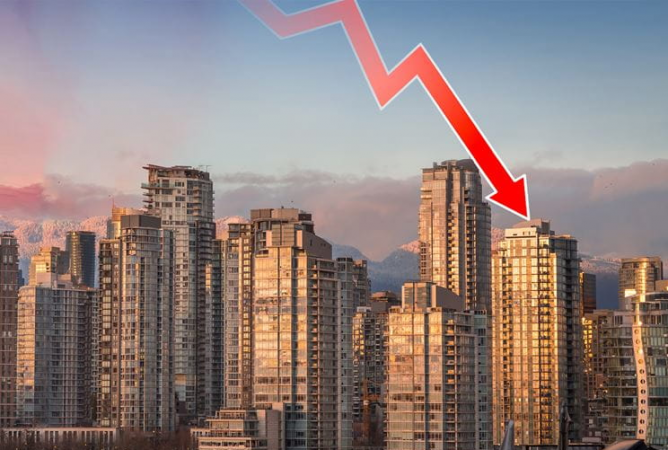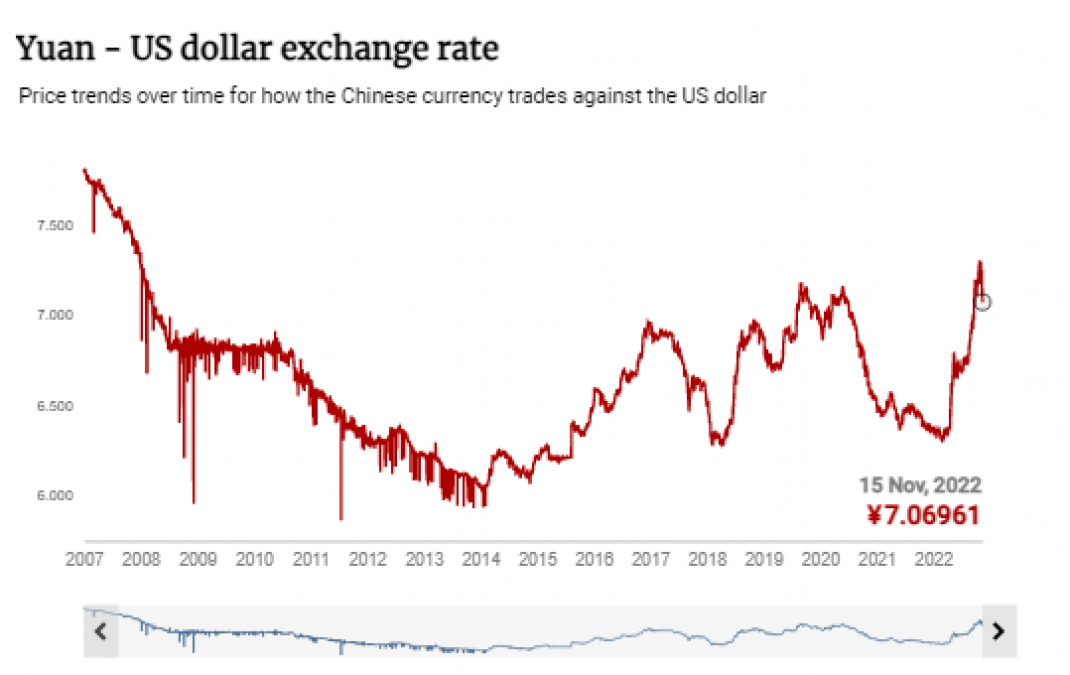
Beijing: Despite recent signals from Beijing that it will ease both coronavirus controls and asset sector restrictions - two of China's biggest economic shocks over the past year - analysts expect the economy to slow well into 2023.
Since the end of last week, a 16-point plan to support the property sector has been unveiled, as well as 20 measures to ease some of the country's stringent coronavirus rules - including quarantine times for close contacts and foreign arrivals is included. reduction is included.
The State Council's announcement of 20 coronavirus measures on Friday sparked a market rally that continued after news from the central bank on Monday and the China Banking and Insurance Regulatory Commission's 16-point plan came out over the weekend.
Also Read: Decline in retail sales in october China's economy experiences a 'further loss of momentum'
The yuan is also gaining ground against the US dollar, ending the domestic session on Monday at 7.0378 per dollar, the yuan's strongest close since Sept. 20.
"Last week was a turning point in China's macropolicy," said Zhang Zhiwei, chief economist at Pinpoint Asset Management. The announcements "help reduce policy uncertainty in the market."
Analysts believe that with weak external and internal demand and no official sign of reversing the zero-Covid policy, the real impact on the country's economic recovery will take a few quarters if not months.
According to Shan Hui, chief China economist at Goldman Sachs, the fundamentals of the latest property sector support measures, which include addressing developers' liquidity problems and easing down-payment requirements for home buyers, are not novel.
"As property sales continue to slide and developer credit expands again," she wrote in a note on Monday, data-dependent policymakers seek to stabilize the market by introducing another round of easing measures .
However, behind the 20 COVID measures, 16 asset measures could generate significant market reactions without significant changes to existing economic fundamentals.
For the past two decades, real estate has been a major engine of China's economic growth, and is the largest component of household wealth in the country, with land sales being the most important source of income for local governments.
However, Chinese developers have struggled over the past year as a result of Beijing's regulatory crackdown as part of efforts and efforts to keep property prices under control. Since then, many developers have faced a liquidity crunch, posing a threat to the stability of the financial system.
According to Nomura economists led by Lu Ting, the 16-point policy package is "the most important pivot" as China significantly tightens funding for the asset sector, and represents Beijing's resolve to reverse most fiscal restrictions. does. ,
"However, the property market is yet to show signs of recovery," he wrote in Monday's note. "First, the official narrative remains that housing is here to stay, not speculation, and Beijing continues to examine what housing model it will eventually adopt." Second, despite recent changes, Beijing's zero-Covid strategy will continue to weigh on the property sector."
Also Read: 'If food crisis arises, you'll not...,' PM Modi's message to world at G-20 Summit
On Sunday, China officially recorded more than 16,000 new coronavirus infections, with several major cities including Guangzhou and Beijing experiencing a surge in cases, leading to more restrictions and neighborhood lockdowns.

The State Council announced on Friday that mass testing would be carried out only in key areas where cases had been detected, and local governments followed on Monday by scaling back free public tests. However, there are concerns that some local governments may choose to tighten restrictions even further.
On Saturday, some "medium-risk" areas in Chongqing, a municipality of more than 32 million people, were reclassified as "high-risk" after new measures reduced the risk-category levels to just two: low-risk and high-risk.
Residents of Beijing, where local cases have soared from dozens to hundreds in recent days, pushed on Monday for the closure of free testing facilities on the streets, especially since a large number of locations - from restaurants to office buildings Patron required Attendance has begun. A negative coronavirus test was taken within 24 hours.
According to Goldman Sachs' Pride, the current round of outbreaks suggests that there are more downside risks to China's near-term growth outlook given the country's zero-Covid policy.
Also Read: Boeing: Sustainable aviation fuel is essential to the decarbonization
"While asset markets may prefer to focus on the 'now', real activity may not immediately shift to the 'later'," she explained.
While the new measures point to a possible reopening, the question remains of how to strike a balance between preventing a severe coronavirus outbreak and not imposing excessive restrictions, according to Macquarie Group chief China economist Larry Hu.
"Any change in zero-Covid, or lack thereof, is at the forefront of everyone's mind." While the sell-side consensus is for a de facto reopening in the second quarter of 2023, many investors are sceptical, according to Hu in a note issued on Monday.
"For them, the timing of a reopening has gone far beyond a matter of public health and has become a test of Beijing's pragmatism."